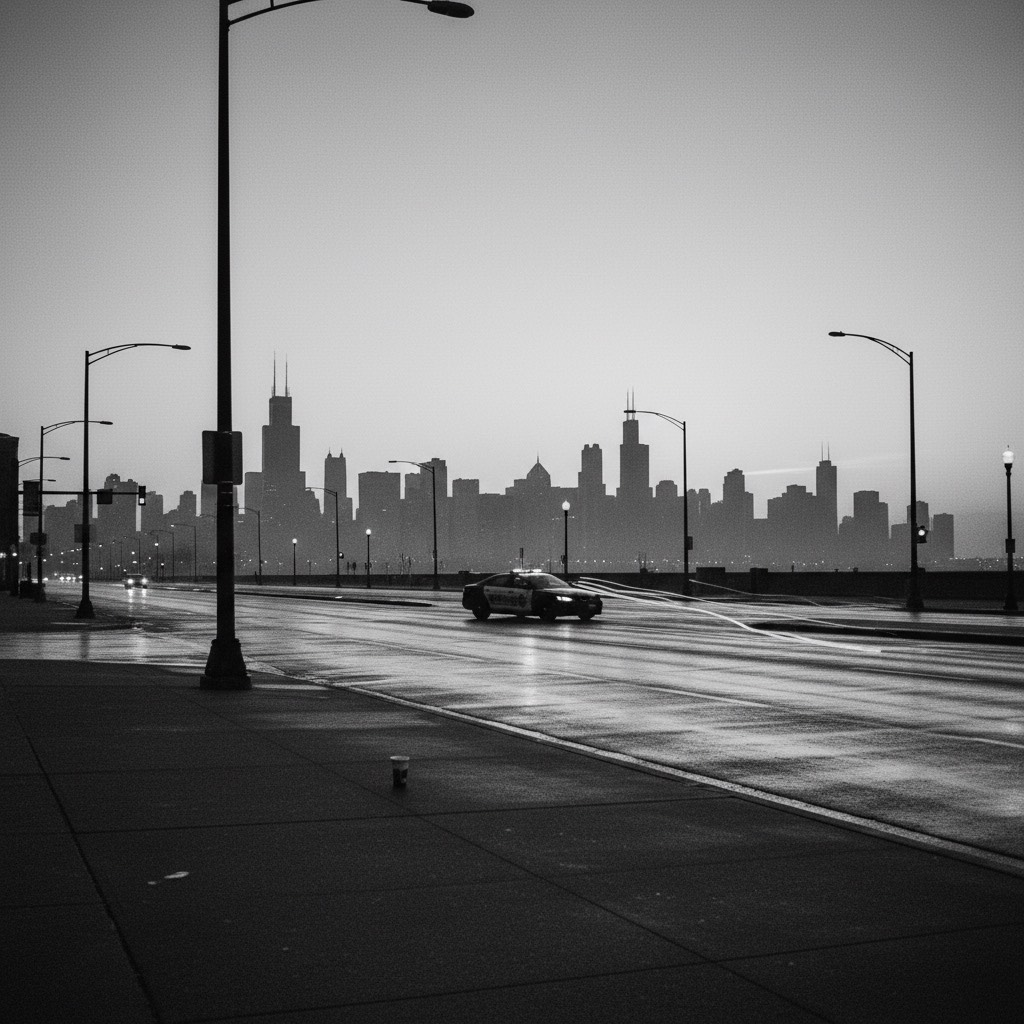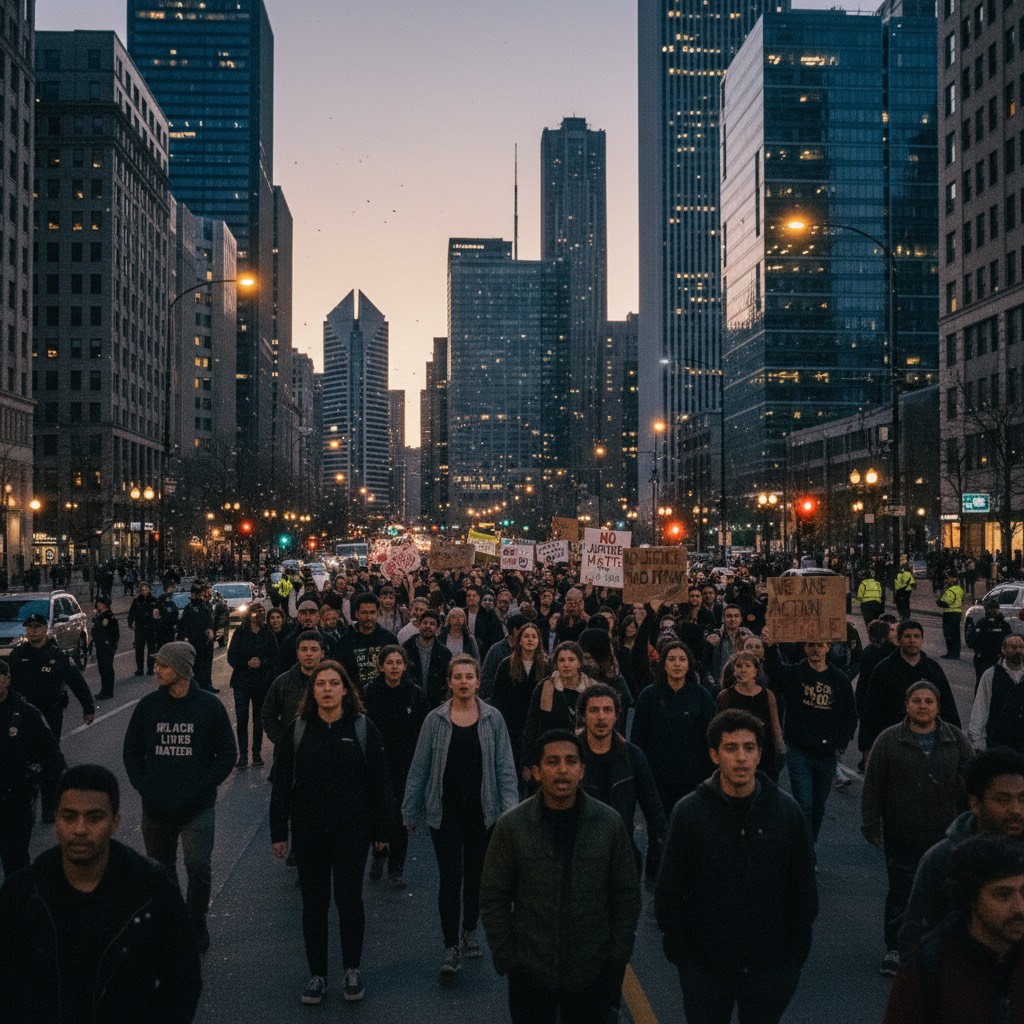
In the hour before sunrise, while Chicago still holds its breath, a city worker sits by a window, the blue glow of their phone blinking between hope and dread. They are a U.S. citizen—passport in hand, citizenship unquestioned—until, in the chaos of the latest crackdown, a federal agent declares that passport an artifact of fraud. In just the past year, it's happened more than ten times: taken, detained overnight, released without apology or clarity, all during surging ICE raids in the city. Each incident tightens the sensation that safety is only ever temporary, that home can be turned provisional by anyone with a badge.Their recent request to work from home is not born from convenience or privilege. It is a plea: let me do my job without risking my freedom, my standing, my peace of mind. It is a plea echoed in hundreds of homes this September, as Operation Midway Blitz sweeps across the city—in a single week, more than 60% of those arrested had no criminal charge at all, according to federal records. Community legal clinics say two-thirds are primary breadwinners.
The city worker's experience reflects a broader unraveling that began long before the raids. Chicago woke to Biden's inauguration in January 2021 with a hope that felt almost antique. Billions arrived through the American Rescue Plan—nearly $2.6 billion to city services and social funds—but every dollar landed in a landscape already stripped bare by pandemic and inequity. In Austin, Sheila Thomas pressed each relief check harder—first against overdue bills, then against the quiet anxiety of what might happen once the money was gone.

"We saw relief," Sheila remembers, "but we kept seeing the struggle too. In church meetings and food pantry lines, hope and worry were the same thing."
The recovery that followed proved uneven and fragile. Vaccinations rolled out, but for every 300 jobs that returned in 2022, 500 gig contracts had already replaced full hours. Chicago's unemployment rate fell from a pandemic high of 9.3% to a 2024 low of 4.6%—yet in August 2025, it's ticked back up to 5.4%, and among Black workers it remains nearly double the citywide average.
Across the South and West Sides, evictions spiked: over 22,500 formal eviction filings a year—about 1 in every 25 renters—hit households. In at least 60% of these neighborhoods, the population is more than 80% Black. Tenant organizer Marlene Wright puts it bluntly: "A missed rent payment isn't a statistic; it's a child uprooted, a neighbor gone."
Budget shortfalls forced painful cuts. Chicago faces a $982 million gap for 2025, with growing pension obligations forcing closures and staff reductions in libraries, youth centers, and mental health services—critical lifelines in communities hit hardest by gun violence and poverty.
The specter of Project 2025 has cast an additional shadow over town halls and community meetings. Medicaid clinics covering more than 18,000 uninsured South Side residents risk closure if federal dollars fade. For families living in ZIP codes where the Black-white life expectancy gap is 11.4 years, that's not an abstraction—life expectancy in some neighborhoods is as low as 62, nearly two decades shorter than Chicago's most affluent enclaves.
"They talk budgets," says Dr. Anita Bell, "but here, cuts sound like sirens. They sound like more funerals."
Into this landscape of economic precarity came Operation Midway Blitz, the latest name for the oldest kind of disruption. The raids struck like a hammer: dawn raids, papers demanded, neighbors vanished. Pilsen, Little Village, Brighton Park—all shaken from sleep by boots and flashlights. ICE data confirms that the majority of those detained in Illinois this summer had no criminal charge at all. In just three weeks, legal support centers like the National Immigrant Justice Center saw a 150% increase in emergency intake calls.

"My block's lived through loss before," says Marisol Diaz, "but I can't remember another September like this. Every time an agent arrives, another child learns what fear smells like."
The raids amplified pressures already squeezing Chicago families. Inflation chews through paychecks and savings. Grocery prices in Cook County are up 14% year-over-year, and rents continue to surge. James Turner, father of three in Austin, frames it simply: "We make it stretch or we go without."
This year's Supreme Court ruling cut protections for immigrants, greenlighting expanded state and federal enforcement. But the impact extends far beyond immigrant communities. LGBTQIA+ Chicagoans are disproportionately affected by rising evictions and job discrimination post-ruling, according to Lambda Legal and Chicago House. Women, especially those needing reproductive or domestic violence care, now compete for services in clinics losing both staff and privacy protections. People with disabilities have seen two major neighborhood support clinics—the only sources for affordable in-home care—close due to city budget shortfalls.
"In every crisis, the most invisible feel the blow first, and hardest," says civil rights attorney Jamila Hassan.
Yet Chicago's story in 2025 is one of both fracture and defiance. Tenant unions organize vigils for those forced out. Legal clinics and mutual aid groups fill gaps as best they can, even as federal anti-poverty programs have lost $24 million in local grants since last fall, leaving the city's safety net ever thinner. Each raid, each cut, each disputed document is met—still—with a protest, a meeting, a mutual aid delivery.
The Midway Blitz, whether it ends tomorrow or after the next election, is both the latest outrage and the strongest reason to organize, according to some local activists. In the hush that arrives after the last siren, Chicagoans choose: organize, resist, remember. Policy may ripple through offices and courts, but it's the choices made by neighbors and networks that will define what survival means in this moment—and what justice must look like tomorrow.